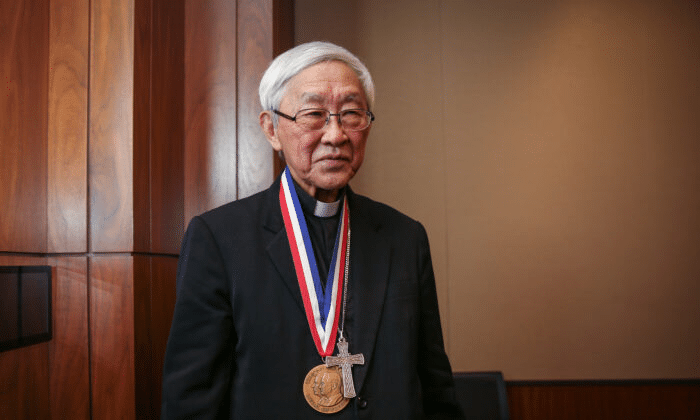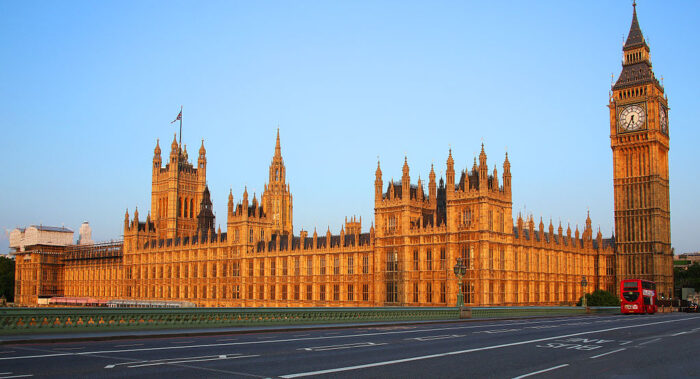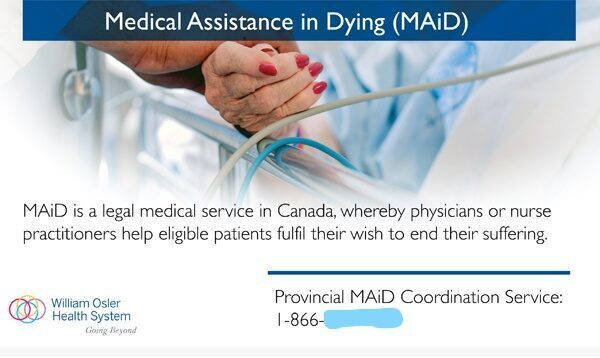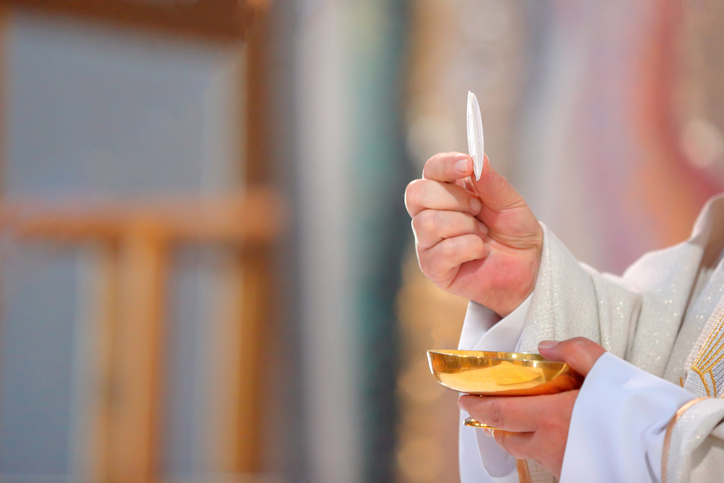
The trustees and secretary of the fund were arrested under the Beijing-imposed national security law two weeks ago on suspicion of ‘colluding’ with foreign forces. They were all released on police bail without charge except for one who is serving a prison term for a banned pro-democracy event in October 2019.
Tuesday’s court hearing saw dozens of residents line up for seats in the public gallery. Consulate staff representing numerous countries such as the US, Britain, Australia, Germany, France, Austria and Ireland, as well as representatives from the European Union Office, also attended the hearing.
The principal magistrate ordered all parties to return to court on August 9 for a pre-trial review, while the official five-day trial is set to take place between September 19 and 23.

Both the Premier and the Opposition Leader had opposed the bill, but they allowed MPs a conscience vote on the extremely divisive issue which passed by a majority vote.
This means that so-called “assisted dying” is now legal in every Australian state. At the Federal level, the new parliament is expected to permit the Australian Capital Territory, where Canberra is located, and the vast but sparsely populated Northern Territory, to legalise it there as well.
The new law does not allow institutions to refuse to allow their residents to have an assisted death, to the consternation of Catholic healthcare officials.
“This law will force organisations that do not agree with assisted dying to allow doctors onto their premises to prescribe and even administer restricted drugs with the intention of terminating a resident’s life – without even informing the facility,” said Brigid Meney, of Catholic Health Australia. “These laws ignore the rights of staff and residents who may choose to work and live in a particular residential facility because of their opposition to assisted dying.”

New powers being taken by Northern Secretary Brandon Lewis would force the North into accepting Westminster’s extreme abortion legislation and further erode the Good Friday Agreement [GFA].
That’s according to Aontú Leader & Meath West TD, Peadar Tóibín.
“From the outset, the imposition of abortion on the North by Westminster has been undemocratic and in complete violation of the Good Friday Agreement. This imposition was facilitated by both Sinn Féin and the SDLP. Attempts to impose radical abortion law on the North have been met with fierce resistance from every corner of society,” he said.
“Now, in an effort to bypass Stormont, Irish self-determination, devolution and the GFA, the Northern Secretary is availing of new powers so he can force the Northern Health Department to expand abortion services. Many people have been shocked and disappointed by SF working hand in hand with Westminster in this circumvention of Irish democracy. They have binned 200 years of Republic ideals of Self-Determination in doing so.”

Evidence is mounting that assisted suicide’s introduction into the Canadian medical system is undermining plans to improve palliative care and actively damaging the already inadequate care system, with some patients choosing to die rather than to continue to live under sub-standard care.
That’s according to Dr. Neil Hilliard, a palliative care expert from Abbotsford, British Columbia.
“It’s like a cancer growing within the palliative care programs,” said Hilliard who, in 2017, resigned as medical director of the Fraser Health Authority’s palliative care program because of his opposition to the authority’s insistence that he support the performing of assisted suicide in hospices.
“(MAiD) is starting to take over to a certain degree. But still only 5% of people are choosing MAiD; 95% would prefer to live well until they die naturally.”
Hilliard’s comments support recent testimony to a Special Joint Committee of Parliament that is reviewing the country’s assisted suicide legislation.
Dr. Leonie Herx, head of palliative medicine at Queen’s University in Kingston, Ontario, testified that only 30%-50% of Canadians who need palliative care have access to it, and only a “very few,” or about 15%, have access to specialist palliative care.

Writing in USA Today, Brad Wilcox and Chris Bullivant say the two-parent family, normally based on marriage is strong among the upper middle class – more than 90% of children live with two married parents, “but among the poor and working class, 35% and 55% of children have the privilege of living in a married home”. A large marriage gap also exists in Ireland.
Yet, they say, journalists, academics, congressional policymakers and the foundation executives who dominate the national conversation “rarely if ever confront the family factor lurking beneath many of our country’s biggest problems”.
They say that this prevents a focus on the enormous family chasm that has emerged in the United States in the last few decades. That marriage divide was virtually nonexistent in the 1970s and yet, now, it “risks entrenching a permanent social and economic divide in society”.
Worse again, the very lack of focus or even recognition of the family factor means that there is “no pressure to generate solutions to bridge the family divide” and the myriad social problems consequent on that fraying societal structure.

Stringent safeguards must be incorporated into any legislation governing surrogacy to ensure babies are not being bought and sold, an international expert on child exploitation has warned.
Maud de Boer-Buquicchio, former UN special rapporteur on the sale and sexual exploitation of children, told the Oireachtas Committee on International Surrogacy the only payment made to a surrogate mother by “commissioning parents” should be to cover the costs of pregnancy and birth, and these costs should be itemised.
Any payment beyond that would amount to the “sale of a child” and would be a crime under international human rights law, she said.
She told committee members, who are examining how best to legislate for surrogacy which remains unregulated here, they had “an enormous responsibility” to ensure women in poorer countries and the children they bore were not exploited.

Archbishop Salvatore Cordileone of San Francisco has barred U.S. Speaker of the House Nancy Pelosi from receiving communion in the archdiocese over her support of abortion.
“After numerous attempts to speak with her to help her understand the grave evil she is perpetrating, the scandal she is causing, and the danger to her own soul she is risking, I have determined that the point has come in which I must make a declaration that she is not admitted to Holy Communion unless and until she publicly repudiates her support for abortion ‘rights’ and confesses and receives absolution for her cooperation in this evil in the sacrament of penance,” Cordileone said in a May 20 letter to the faithful.
Numerous other Bishops have voiced their support for Cordileone’s move and have promised to honour his ban in their own dioceses.
Pelosi, a Democrat and self-described devout Catholic, has long been outspoken about her pro-abortion rights stance. In the letter, Cordileone stated that Pelosi’s abortion stance has “become only more extreme over the years.”

The Religious Sisters of Charity are fearful and bewildered for having been so badly portrayed in the public eye since deciding to transfer ownership of St Vincent’s Hospital in Dublin, paving the way for the new National Maternity Hospital to be built on the same campus.
“You would think we were evil,” a source close to the Sisters told The Irish Catholic this week. “We’ve been treated like monsters. In no way do they want the Church involved in any way [in the running of healthcare].
“Yet many, many people experienced the care and the work the Sisters had done. . . . Yes, there were some exceptions but for the most part the good that was done was amazing,” the source said.
The Religious Sisters of Charity began caring for cholera victims in Ireland in 1832 and in 1834 set up St Vincent’s Hospital and since then have been “dedicated to providing the best possible healthcare in hospitals, hospices, nursing homes and in the homes of the sick.
“The nuns are also known for their work among prisoners and the homeless as well as in education, counselling and immigrants.
“It is distressing that people would think so badly of us. I’m more concerned for the people who are saying these things than for us,” continued the source.
“The sisters are absolutely terrified of the media and the way they have been portrayed. The notion that a young person listening to this, what idea of Christianity do they go away with?” she said.

Ireland cannot be silent on the “contempt” shown by Chinese authorities in arresting Cardinal Joseph Zen for his support of democracy in Hong Kong, said Senator Gerard Craughwell.
Speaking to The Irish Catholic, the independent senator asked “how many tonnes of beef is the human rights abuse in Hong Kong worth to keep us silent?”
The 90-year-old Cardinal Zen was detained by national security police earlier this month, charged with violating the territory’s draconian security law, before being released on bail. The charges relate to the work of the 612 Humanitarian Relief Fund, a charity that helps political arrestees in Hong Kong defray their legal expenses.
Senator Craughwell said the arrest speaks volumes about the “Chinese Junta”, that they “have the neck to go that far up the community food chain to arrest a senior member of the Catholic Church.
He added that Ireland “should be making the strongest statements as publicly as possible at the UN security council.
Attempts to raise issues relating to China’s actions in Hong Kong in the Seanad “are closed down as much as possible”, Senator Craughwell said.
“We daren’t say a word that might lead to a reduction in the amount of beef we export,” he continued.

JK Rowling has condemned as “utterly shameful” the treatment of a teenage girl who felt forced to leave her school after pupils hounded her for challenging the views of a visiting speaker.
The author waded into the row after a teacher at the school claimed the unnamed girl was treated like a heretic for questioning a politician’s assertions about sex.
After debating with the speaker, a female member of the House of Lords, the sixth form student at the private girl’s school said she was surrounded by up to 60 pupils who shouted, screamed and spat at her. She escaped and said she collapsed, unable to breathe properly.
Teachers were initially supportive but withdrew their backing after the other sixth-formers accused the girl of ‘transphobia’, and the school ended up apologising for not maintaining a “safe space” in the sixth form.
The teenager returned to school a few times but was told she would have to work in the library if she said anything provocative in lessons, and faced bullying and accusations of transphobia from pupils throughout the school. She also spent break and lunch times in the library. The girl left in December and is studying at home.